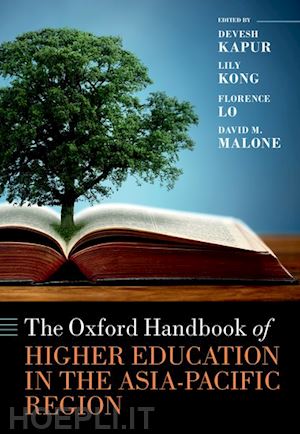Since the turn of the millennium it has become clear that the Asia-Pacific Region is, economically, the fastest growing continent in the world, and is likely to remain so for some time despite the setbacks of the COVID-19 pandemic. Asia-Pacific's share of the world's Gross Domestic Product (GDP) doubled from 15 per cent to 30 per cent between 1970 and 2017 and is projected to account for half of global GDP by 2050. With South East and South Asia also growing rapidly, with over half the world's population and three of the world's five largest economies, Asia is soon poised to home half of the world's middle class - a class that is both the driver and the product of higher education. The quality of a country's system of higher education may be seen both as a gauge of its current level of national development as well as of its future economic prospects. It is therefore natural that the putative "Asian Century" should generate interest in the region's higher education systems which, on the one hand, share common characteristics-a fixation with credentials and engineering, high technology (especially among male students), and business degrees-while at the same time are also highly differentiated, not only across countries but also within. As such, a better understanding of higher education achievements, failings, potential, and structural limitations in the Asia-Pacific Region is imperative. This handbook presents a number of significant country case-studies and documents cross-cutting trends relating to, among other things: the trilemma faced by governments juggling competing claims of access, accessible cost, and quality; the balance between teaching and research; the links between labour markets (demand) and higher education (supply); preferred fields of study and their consequences; the rise of the research university in Asia; the lure of institutions of international reputation within the region; new education technologies and their effects; and, trends in government policy within the wider region and sub-regions.











